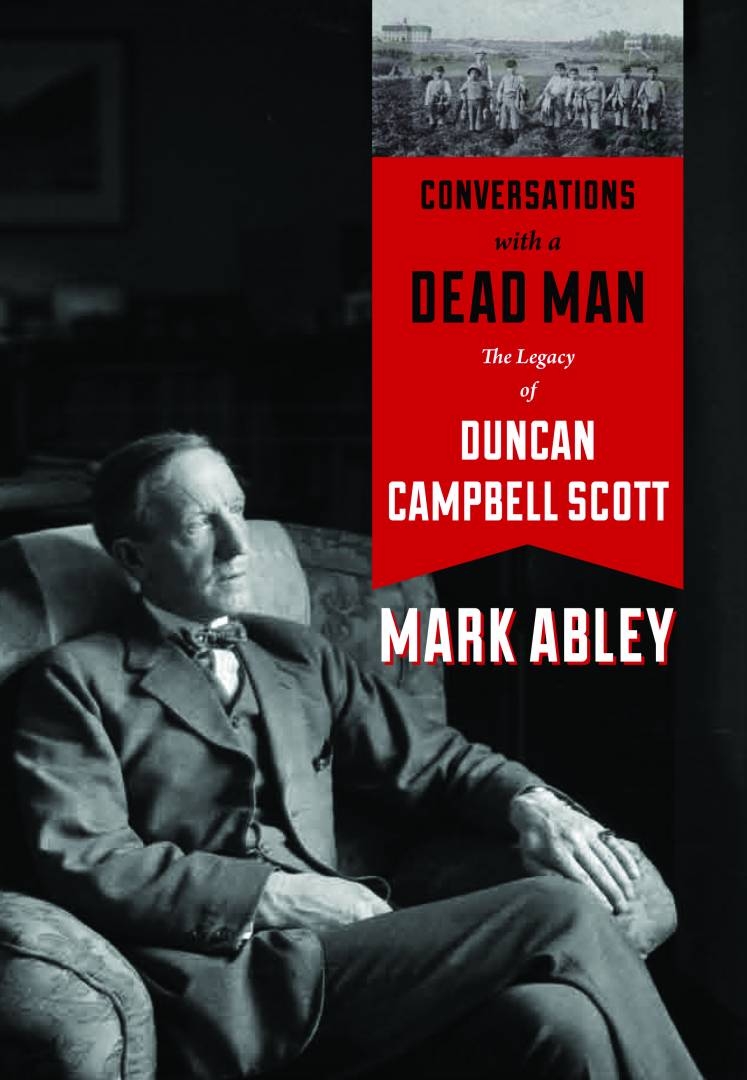
Conversations with a Dead Man: The Legacy of Duncan Campbell Scott by Mark Abley (Douglas & McIntyre)
Duncan Campbell Scott (1862-1947) died one of the most respected men in Canada – a well-known poet and short-story writer, a former president of the Royal Society of Canada, a founder of the Dominion Drama Festival, and a recipient of honorary doctorates from Queen’s University and the University of Toronto. A memorial service was held in his honor at St. Martin’s in the Fields Church in central London – an almost unprecedented tribute to a Canadian poet. When Margaret Atwood edited the New Oxford Book of Canadian Verse in 1983, she granted Scott 11 pages (most of them for his poems about Aboriginal people); only three poets in the entire book received more space.
Yet in 2007, when The Beaver (now Canada’s History) asked experts to name the 10 worst Canadians of all time, Scott appeared on the list – alongside the founder of the Canadian Nazi Party, among others. How did his reputation fall so dramatically?
The answer lies not in Scott’s work as a man of letters, but in his day job as a civil servant. He joined the federal government as a copy clerk while still a teenager, and remained there for 52 years. Unfortunately, the department he served with such tireless efficiency was Indian Affairs. He became its chief clerk and accountant, then the supervisor of residential schools, and finally (for 19 years) the deputy minister. In 1920, he told a House of Commons committee: “I want to get rid of the Indian problem. (…) Our objective is to continue until there is not a single Indian in Canada that has not been absorbed into the body politic, and there is no Indian question.” Today he stands accused of cultural genocide. To a few historians and many Aboriginal people, he is considered Canada’s equivalent of Hitler.
Is the accusation fair? How could Scott do what he did by day, while writing good and occasionally superb poetry by night?
That’s what this book sets out to answer – not in a dry, academic manner, but by using the techniques of creative non-fiction. The book is thoroughly researched, and contains some new details about Scott’s life – but it is dominated by a series of conversations between “Mark Abley” (a character in his own book) and the ghost of Duncan Campbell Scott, who appears before “Mark Abley” in the opening chapter and asks for his name to be cleared. Can it be? Should it be? Is there any way to forgive the man for what he did, and for what he refused to do?
Such questions throw some of Canada’s current difficulties with Aboriginal issues into a sharp, unexpected light. Conversations With a Dead Man is not only a book about a disturbing historical figure; it’s also about how today we need to come to terms with the shadows in our past if our country is to move forward.
The author will be in Ottawa on December 8, 2013 for a signing and talk at Books on Beechwood (35 Beechwood) from 1-3 pm.
Conversations with a Dead Man: The Legacy of Duncan Campbell Scott will soon be sold at bookstores everywhere and through www.amazon.ca –
http://www.amazon.ca/Conversations-Dead-Man-Legacy-Campbell/dp/1553656091













